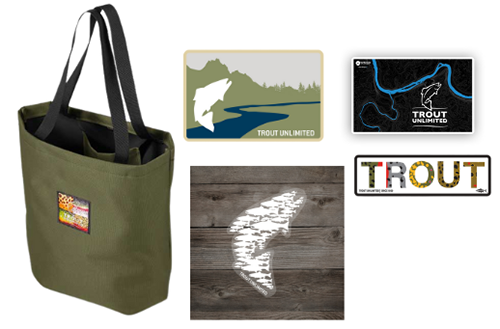Liquor Liability
From time-to-time, chapters and councils desire to have alcoholic beverages supplied at TU sponsored events. This can take several forms, depending upon who furnishes the beverages, who serves the beverages and who charges for the beverages. TU recognizes that alcoholic beverages can be enjoyed responsibly, but the serving of alcohol at any TU event involves risks not only for your chapter, council, and volunteer leaders, but also for anyone who could be injured by someone who consumes too much alcohol at the event. Chapter and council leaders should be particularly aware of the risks involved with serving alcohol and should take steps to avoid or minimize those risks. This section of the Tacklebox discusses the best ways to reduce those risks.
The best way to avoid the risks involved with alcohol is not to allow alcohol at events that are not purely social events. Alcohol has no place at youth events (including camps), at teaching events, at events involving watercraft or wading, or at stream restoration and cleanup events, especially where potentially dangerous tools or equipment are used. Chapters and councils should prohibit anyone from using alcohol at such events and should strictly enforce that prohibition.
If your chapter or council wishes to have alcoholic beverages at purely social events, your chapter or council must use third-party professionals to sell and serve alcohol. Those third-party vendors must be licensed by state and local authorities to sell and serve alcohol and must have at least $1,000,000 of liability insurance for that sale and service. Most social events take place at facilities that are licensed to serve alcohol, including hotels or restaurants. Licensed caterers can be retained for other social events. In short, chapters and councils must not sell or serve alcohol.
In addition, chapters and councils must not profit–either directly or indirectly–from the sale of alcohol. They must not, for example, agree with the vendor to receive a donation calculated on a percentage of the sales of alcohol at the event.
In addition, chapters and councils should:
-
- Assure that the licensed server will provide a trained bartender to measure drinks, assess the condition of the patrons, and stop serving anyone who has had enough.
- Obtain a copy of the server’s liquor license and liquor liability policy and make sure that policy has limits of at least $1,000,000. Give volunteer operations staff a copy of the license and the liquor liability policy at least two weeks before the event.
- If possible, have TU, your chapter, your council, and your volunteers named as additional insureds on the licensed server’s liquor liability (This may be difficult, unless the event is large).
- Make sure (1) that the alcohol is served only during the first part of the event and the bar is closed when the meal, if any, starts or shortly thereafter, (2) that “tipsy taxis” or designated drivers are provided free of charge, and (3) that free non-alcoholic beverages are readily available.
- Limit drinks to beer and wine and control the number of drinks available through drink tickets provided as people enter the event.
- Even if the event does not involve a meal, make sure that food of some sort is available.
- Negotiate a rate for meals and facilities that is not based upon the amount of alcohol served and do not share, even indirectly, in the proceeds of alcohol sales by a licensed vendor.
While TU’s insurance policies do provide coverage for liquor liability, that coverage is limited, and it is technical. Chapters and councils should not assume that they have coverage under that policy for their activities if those activities vary from the practices listed above without first checking with the volunteer operations staff.
If for some reason your chapter or council is involved in planning an event at which it will charge (even indirectly) for alcohol, in which it will serve alcohol, in which the chapter or council will share (even indirectly) in the proceeds of the sale of alcohol, or in which your chapter or council is required to obtain a liquor license to serve or furnish alcohol, your chapter or council must contact volunteer operations staff well before the event is scheduled to occur. Volunteer operations staff will work with your chapter or council to assure that your event is structured to bring it within the coverage of TU’s insurance policies. This same rule applies if your chapter or council is part of a group or coalition that charges for alcohol, that shares in the proceeds of the sale of alcohol, or that is required to obtain a license to serve or furnish alcohol.
Many states and local jurisdictions require non-profit organizations to obtain event or similar licenses before they can serve or furnish alcohol at events, and any chapter or council considering serving or furnishing alcohol at any event should check with its state and local authorities to determine if a license to serve or furnish alcohol is required for that event.


